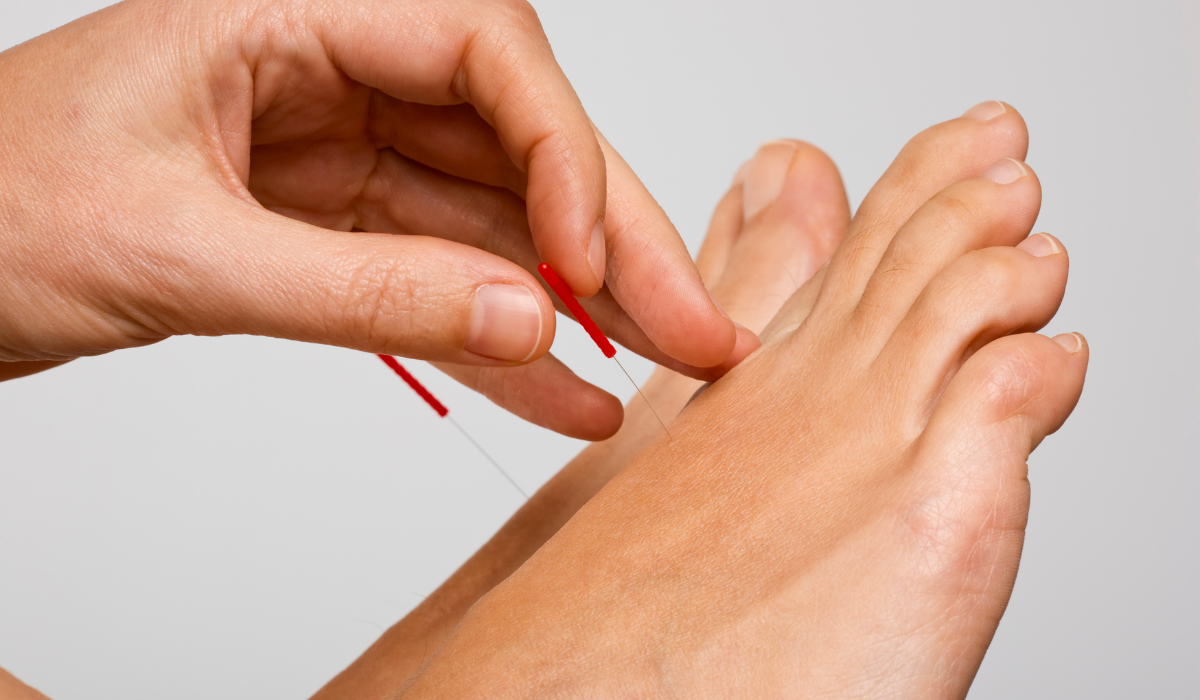Acupuncture, an ancient Chinese medical practice, has been increasingly recognized for its potential benefits in improving male fertility. Male fertility testing can often reveal underlying issues such as low sperm count, poor sperm motility, or abnormal sperm morphology that may hinder conception. Acupuncture, when incorporated as a complementary treatment alongside traditional medical interventions, has shown promising results in addressing these concerns and enhancing overall male reproductive health. By targeting specific acupoints and stimulating the body’s natural healing mechanisms, acupuncture can potentially improve sperm quality, increase sperm production, and regulate hormonal imbalances. This introductory paragraph aims to shed light on the potential benefits of acupuncture in assisting male fertility tests and encourage further exploration of this alternative therapy for those struggling with fertility issues.

What is the accuracy of male fertility tests?
The accuracy of male fertility tests can vary depending on the specific test being used. Generally, these tests measure aspects such as sperm count, motility, and morphology to assess fertility potential. While some tests claim high accuracy rates, it is important to note that they do not guarantee fertility or infertility. Additionally, the accuracy may be influenced by factors such as testing conditions, sample quality, and individual variation. It is recommended to consult a healthcare professional for an accurate diagnosis and interpretation of male fertility test results.

Are there any potential side effects or risks associated with male fertility testing?
There are generally no significant risks or side effects associated with male fertility testing. The most common method of testing is a semen analysis, which involves providing a sperm sample for examination. Occasionally, men may experience minor discomfort during the process, such as feeling embarrassed or nervous, but these are mostly psychological factors. In rare cases, there may be a possibility of infection if proper hygiene protocols are not followed. However, overall, male fertility testing is considered safe and poses minimal risks.
How long does it take to receive results from a male fertility test?
The time it takes to receive results from a male fertility test can vary depending on the specific type of test being conducted. In general, basic semen analysis results can usually be obtained within a few days to a week, as this process involves examining a sample of semen under a microscope. However, more comprehensive tests that evaluate factors like sperm DNA fragmentation or hormone levels may take longer, typically up to a couple of weeks. The exact turnaround time also depends on the laboratory’s workload and the healthcare provider involved in conducting the test.
Are there any lifestyle factors that can affect the results of male fertility testing?
### Can male fertility tests determine the specific cause of infertility?
Do male fertility tests have an age limit?

Male fertility tests can help identify potential factors that may contribute to infertility, but they cannot always determine the specific cause. These tests typically involve analyzing semen samples to assess various parameters such as sperm count, motility, and morphology. Abnormal results in these tests can indicate issues like low sperm production, poor sperm quality, or blockages in the reproductive system. However, further evaluation, such as hormone tests or genetic screening, may be necessary to pinpoint the exact underlying cause of male infertility. Additionally, some causes of infertility may not be detectable through standard fertility tests, requiring more specialized procedures or consultations with fertility specialists.

Can male fertility tests predict future fertility potential?
Yes, there are several lifestyle factors that can affect the results of male fertility testing. One key factor is tobacco smoking, as it has been linked to decreased sperm count and motility, as well as increased DNA damage in sperm. Alcohol consumption is another lifestyle factor that can impair male fertility, as excessive drinking has been associated with reduced semen quality. Additionally, obesity and poor diet have been found to negatively impact male fertility, with studies suggesting a correlation between high body mass index (BMI) and decreased sperm concentration and motility. Stress and lack of physical activity may also contribute to reduced fertility in men, emphasizing the importance of maintaining a healthy lifestyle for optimal reproductive health.
Are there any alternative methods for male fertility testing?
Male fertility tests do not have a specific age limit, as they can be conducted at any stage of life. However, it is generally recommended for men to undergo fertility testing if they are experiencing difficulties in conceiving with their partner or if they have certain risk factors or medical conditions that may affect their fertility. Age can impact male fertility, with studies suggesting that sperm quality and quantity tend to decline with increasing age. Therefore, older men may benefit from fertility testing to assess their reproductive health and determine the potential need for assisted reproductive techniques.

The Effectiveness of Acupuncture in Improving Male Fertility: A Comprehensive Review and Analysis

Male fertility tests, such as semen analysis and sperm DNA fragmentation testing, can provide valuable information about a man’s current fertility potential. These tests assess the quantity, quality, and functionality of sperm, which are important factors in determining fertility. However, it is important to note that these tests cannot predict future fertility potential with certainty. Factors such as age, lifestyle choices, and medical conditions can affect fertility over time. Therefore, while male fertility tests can provide useful insights, they should be considered alongside other aspects when assessing future fertility potential.
Boost Your Website’s Rankings with the Top WordPress SEO Agency in Reading, Berkshire
Yes, there are alternative methods for male fertility testing. One alternative method is the home-based sperm test kit, which allows men to collect their own semen sample and assess key parameters such as sperm count, motility, and morphology at home. These kits are convenient and provide quick results, although they may not be as accurate as laboratory-based tests. Additionally, advanced technologies like computer-assisted semen analysis (CASA) and DNA fragmentation analysis can provide more detailed information about sperm quality and potential fertility issues. However, it’s important to note that these alternative methods should not replace comprehensive fertility evaluations conducted by healthcare professionals.

In conclusion, acupuncture has shown promising results in improving male fertility. Various studies have demonstrated that acupuncture can enhance sperm quality, increase sperm count, and improve sperm motility. Additionally, it has been found to regulate hormone levels, reduce stress, and enhance overall reproductive health in males. However, it is important to note that acupuncture should not replace conventional medical treatments for infertility. Instead, it can be used as a complementary therapy to optimize the chances of conception. Therefore, further research and consultation with healthcare professionals are necessary to determine the most effective approach for using acupuncture in male fertility tests.